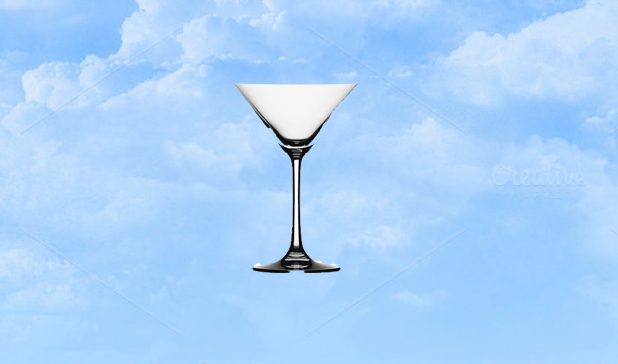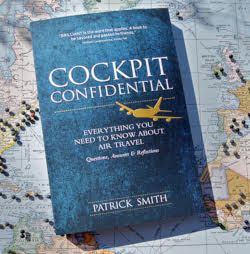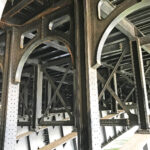Pilots and Alcohol

August 15, 2019
ON AUGUST 3rd, two United Airlines pilots were arrested at the airport in Glasgow, Scotland, after allegedly failing a breathalyzer test prior to operating a flight to Newark, New Jersey.
Curiously, this is not the first time a United crew arrested in Glasgow for the same alleged offense. In August, 2016, at the very same airport, a pair of United pilots were taken into custody under almost identical circumstances.
This is a tough one for me — maybe the most difficult of any subject to tackle. Incidents like these are a shameful black eye for the profession. The sound you heard was that of thousands of pilots everywhere groaning with embarrassment, if not anger. And they have kept alive a lingering stereotype of the airline pilot: the hard-drinking, renegade divorcee, with crows’ feet flanking his eyes and a whiskey-tempered drawl, a flask tucked into his flight case. And it’s easy to jump to conclusions. For every pilot nabbed, there must be ten others over the legal limit, right?
No, frankly. I have to acknowledge that yes, pilots have, on several occasions now, been found guilty of flying, or attempting to fly, under the influence. At the same time, it needs to be made clear how unusual this is. Tens of thousands of commercial flights depart daily around the world. Of all the things might endanger even one of these aircraft, intoxicated pilots is about as statistically insignificant a threat as might exist. I understand and expect that passengers will worry about all sorts of things, rational and otherwise. But as a rule, whether or not your pilots are drunk should not be one of them. These rare and isolated incidents deserve the attention they receive, and they need to be taken seriously. But they are not a symptom of some dangerous and unseen crisis. My personal observations are hardly a scientific sample, but I’ve been flying commercially since 1990 and I have never once been in a cockpit with a pilot who I suspected was intoxicated.
This is not something pilots play fast and loose with. Why would they, with their careers, to say nothing of the lives of their passengers, hanging in the balance? Violators are subject to immediate, emergency revocation of their pilot certificates.
The FAA blood alcohol limit for airline pilots in the United States is .04 percent, and we are banned from consuming alcohol within eight hours of reporting for duty. Pilots must also comply with their employer’s in-house policies, which tend to be tougher. (In the wake of the most recent Glasgow incident, United as moved to a minimum twelve-hour rule.) Above and beyond that, we’re subject to random, unannounced testing for drugs and alcohol. Overseas, the regulations are even tighter. In Britain, the legal limit is set at twenty milligrams of alcohol per one hundred milliliters of blood. That’s four times lower than the British limit for drunk driving and equates to about .02 percent blood alcohol level.
Not for nothing, though: Scottish regulations are more strict that those of the FAA. The legal limit is about .02 percent blood alcohol level. It’s not impossible for a pilot to be in full compliance with the time restrictions and not feel any of the typical signs of intoxication, yet still be in violation. The same can sometimes be said for our own .04. That’s not an excuse; I have no problem with a requirement that pilots abide by a higher, more conservative standard than others. If we need to be extremely careful, so be it, that’s part of our job. But it’s something to think about, and passengers should realize that “flying drunk” isn’t as clear-cut as it might seem.
It’s also true that more than one airline pilot has been pulled aside after a passenger, TSA guards, or other airport worker wrongly suspected the pilot was intoxicated. Typically in such cases, the papers and TV news hastily report the initial suspicion, but not the vindication.
Having said all that, it should go without saying that alcoholism exists in aviation. Just as it exists in every other profession, including many with public safety To their credit, air carriers and pilot unions like ALPA have been very successful with proactive programs that encourage pilots to seek treatment. This has helped keep the problem from being driven underground, where it’s more likely to be a public safety issue.
Not long ago I flew with a colleague who participated in the highly successful HIMS program — an intervention and treatment system put together several years ago by ALPA and the FAA. HIMS has treated more than 4,000 pilots and records a success rate of near 90 percent, with only 10-12 percent of participants suffering relapse. I asked that colleague if, prior to going into HIMS, he’d ever knowingly flown under the influence. His answer was a firm and very believable no.
Some of you may be familiar with the tale of former Northwest Airlines captain Lyle Prouse. Prouse, together with the other two pilots in his crew, was arrested one morning in Minnesota in 1990. All three had spent the previous evening’s layover at a bar in Fargo, North Dakota, downing as many as nineteen rum and Cokes. Tests showed their blood-alcohol levels far beyond the legal limit.
Prouse was sentenced to 16 months in federal prison. An alcoholic whose parents had died of the disease, he later became a poster pilot for punishment and redemption. AFter a remarkable and improbable sequence of events, he was able to return to the cockpit on his 60th birthday and retire as a 747 captain.
Once out of jail, Prouse was forced to requalify for every one of his FAA licenses and ratings. Broke, he relied on a friend to lend him stick time in a single-engine trainer. Northwest’s then-CEO, John Dasburg, who himself had grown up in an alcoholic family, took a personal interest in Prouse’s struggle and lobbied publicly for his return.
You’ll see Prouse in interviews from time to time, and inevitably you’ll be struck by how forthrightly he takes responsibility, without resorting to the sobby self-flagellation of most public apologies. Always one is left, unexpectedly, to conclude that this convicted felon deserved his second chance. In 2001 he was granted a Presidential pardon from Bill Clinton.
Related Stories:
DENZEL WASHINGTON AND THE MOVIE ‘FLIGHT’
PILOTS AND MENTAL HEALTH



